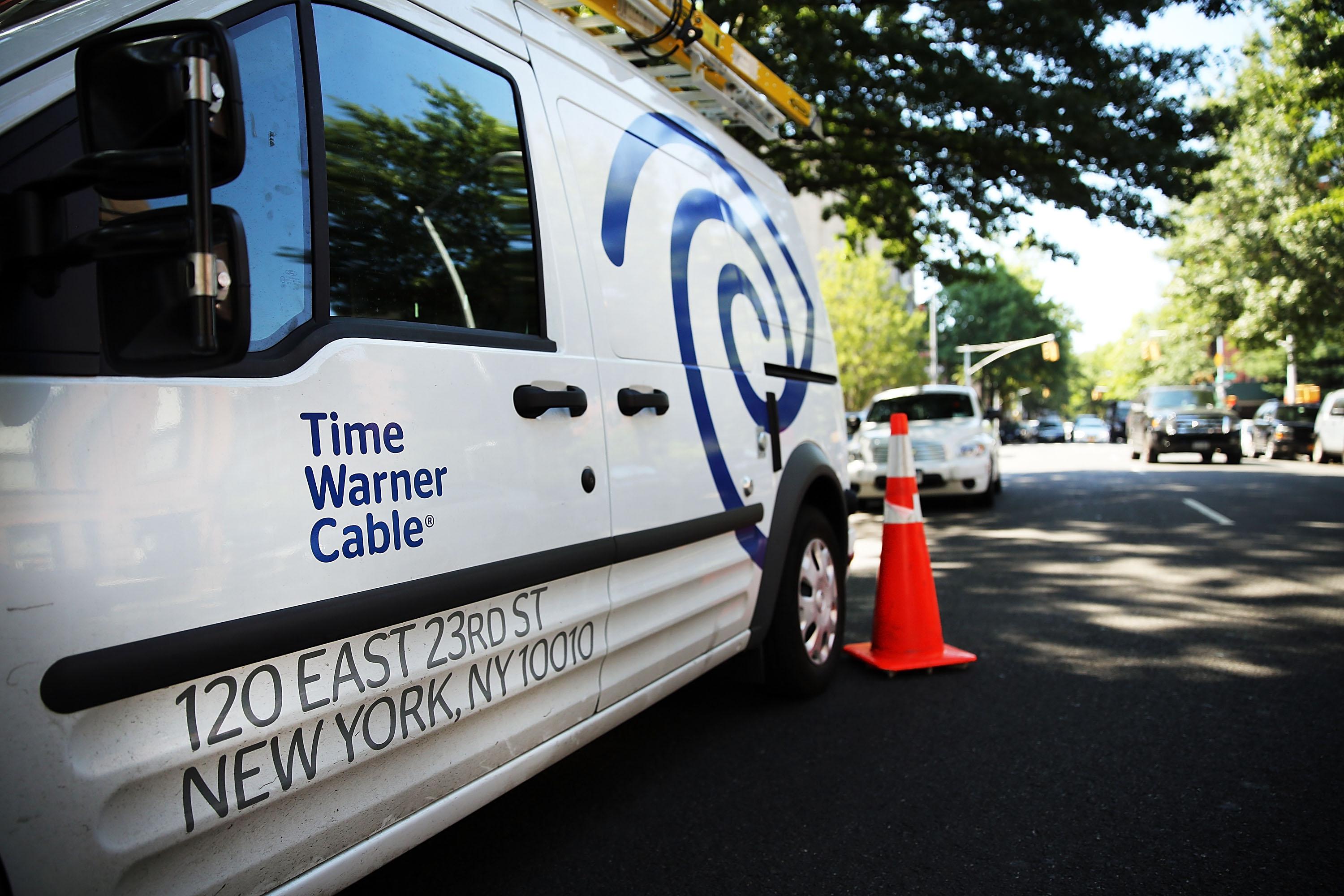It’s been barely a month since Comcast’s $45.2 billion bid for Time Warner Cable fell apart at the hands of regulators, but already the companies have moved on. Comcast has committed to being somewhat nicer to consumers. And Time Warner Cable said Tuesday that it will be acquired by Charter Communications, one of the largest cable operators in the United States, in a $55 billion cash-and-stock deal that values Time Warner Cable at $78.7 billion, or approximately $196 a share. Charter will also acquire Bright House Networks for $10.4 billion. Altogether, that will give Charter control of 23.9 million customers in 41 states.
While the month between the death of the Comcast–Time Warner Cable deal and the announcement of this one might seem short, it’s a merger that Charter and Time Warner Cable have considered plenty of times before. Charter made several bids for Time Warner Cable in 2013 but was turned away in favor of Comcast. This time around, John Malone, a telecom billionaire and the deal’s main backer thanks to a 27 percent stake in Charter held by his company Liberty Media, helped to nudge the merger along. The Wall Street Journal reports that Malone and Charter together “took a more light-handed approach”:
Mr. Malone got more involved, people familiar with the matter say, calling Time Warner Cable Chief Executive Rob Marcus in the early stages of Charter’s pursuit to indicate he wanted a friendly deal. Charter’s camp made a point of not submitting a lowball bid that would put off Time Warner Cable, the people said.
As with Comcast’s ill-fated deal, the big question with this new merger will be whether it can pass regulatory muster. The Journal reported last week that Federal Communications Commission Chairman Tom Wheeler had reached out to both Charter and Time Warner Cable to suggest that his agency was not necessarily opposed to any and all future big cable deals. At the same time, since Comcast’s deal collapsed, Wheeler has suggested he’d like to see the cable industry move toward competition rather than consolidation. “More competition would be better,” Wheeler said in a speech earlier this month at the National Cable and Telecommunications Association conference. He encouraged cable operators to “overbuild” into each others’ turf, essentially undoing their patchwork of regional monopolies. “While I know it is an anathema to your geographically defined way of looking at the industry, I believe—as some have already demonstrated—that it can also be an opportunity,” Wheeler added.
Does that mean Wheeler would also like to see Charter build into Time Warner Cable’s territory instead of buying it out? For now, the FCC has simply released a short statement noting that every merger is reviewed “on its merits” to determine “whether it would be in the public interest.” But Todd O’Boyle, program director at public interest group Common Cause, says there’s “no reason to assume that this will get a rubber stamp or pro forma approval.” Wall Street, for its part, appears to agree. Shares of Time Warner Cable were up just 7 percent in midday trading—far less than the 14 percent premium in Charter’s offer—suggesting investors are hesitant to buy in. Time Warner Cable might already be over the failed Comcast deal, but it seems like just about everyone else is not.
